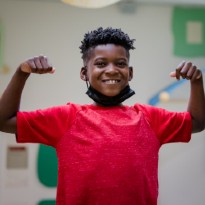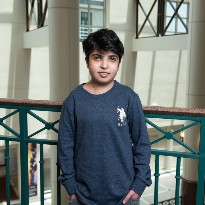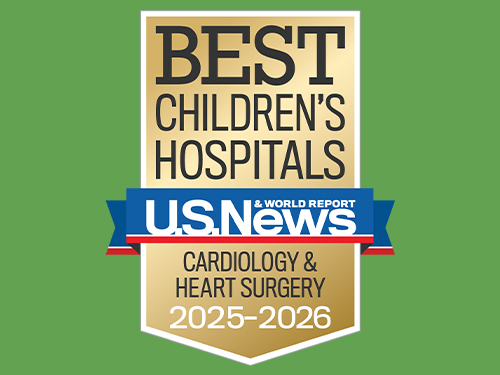The normal heart has four chambers: two upper chambers called atria, which receive blood into the heart, and two lower chambers called ventricles, which pump blood out of the heart. Many children with a congenital heart defect have only one functional ventricle, or pumping chamber, that is able to pump blood effectively.
Biventricular repair, biventricular conversion, and ventricular recruitment are treatment options for complex congenital heart patients born with a single ventricle defect, or a small right or left heart.
Traditionally, the treatment for these types of heart conditions involves a single ventricle palliation: a series of open heart surgeries (the Norwood, Glenn, and Fontan procedures) to allow the single working ventricle to pump blood to the body, leaving the blue blood to flow passively to the lungs. This traditional treatment option, while effective in many patients, can ultimately lead to heart failure, decreased quality of life, and potential need for heart transplantation.
For many children, biventricular repair and biventricular conversion offer an alternative, advanced treatment option for those previously managed as single ventricles. The types of biventricular repair procedures are listed below:
- Biventricular Repair – an innovative procedure requiring specialized expertise aimed to create pathways and chambers that allow for a normal, two-ventricle arrangement in the patient’s heart. The affiliated team at the Children’s Heart Institute offers a full biventricular repair in the newborn period, enabling some patients the opportunity to avoid numerous surgeries. Many children traditionally referred for the Norwood procedure or the single ventricle pathway treatment option can now be managed as two-ventricle, full repairs from the birth.
- Biventricular Conversion – For patients who have previously received single ventricle palliation (the Norwood, Glenn, and Fontan procedures), this procedure technique aims to convert them back to a normal, two-ventricle arrangement.
- Ventricular Recruitment – staged biventricular repair procedures to recruit (make grow) a smaller or borderline ventricle and enable a complete biventricular repair in the future.
Diagnosis and Advanced Imaging
Congenital heart defects may be diagnosed during pregnancy with a fetal echocardiogram, which is a specialized ultrasound of the fetal heart. The affiliated physicians in the Fetal Cardiology Program at The Fetal Center will confirm a diagnosis and prepare a delivery plan for both mom and baby. The multidisciplinary team of affiliated fetal and pediatric heart specialists will also develop the baby's immediate treatment plan following delivery.
If the heart defect is not diagnosed in utero, and suspicion of a heart defect develops after the baby is born, a pediatrician will refer the patient to a neonatologist or a pediatric heart specialist to determine the diagnosis. At Children’s Memorial Hermann Hospital, our advanced diagnostic imaging includes echocardiography, cardiac MRI, CT scanning and other technology. Imaging scans performed help the affiliated team determine the appropriate plan of care.






